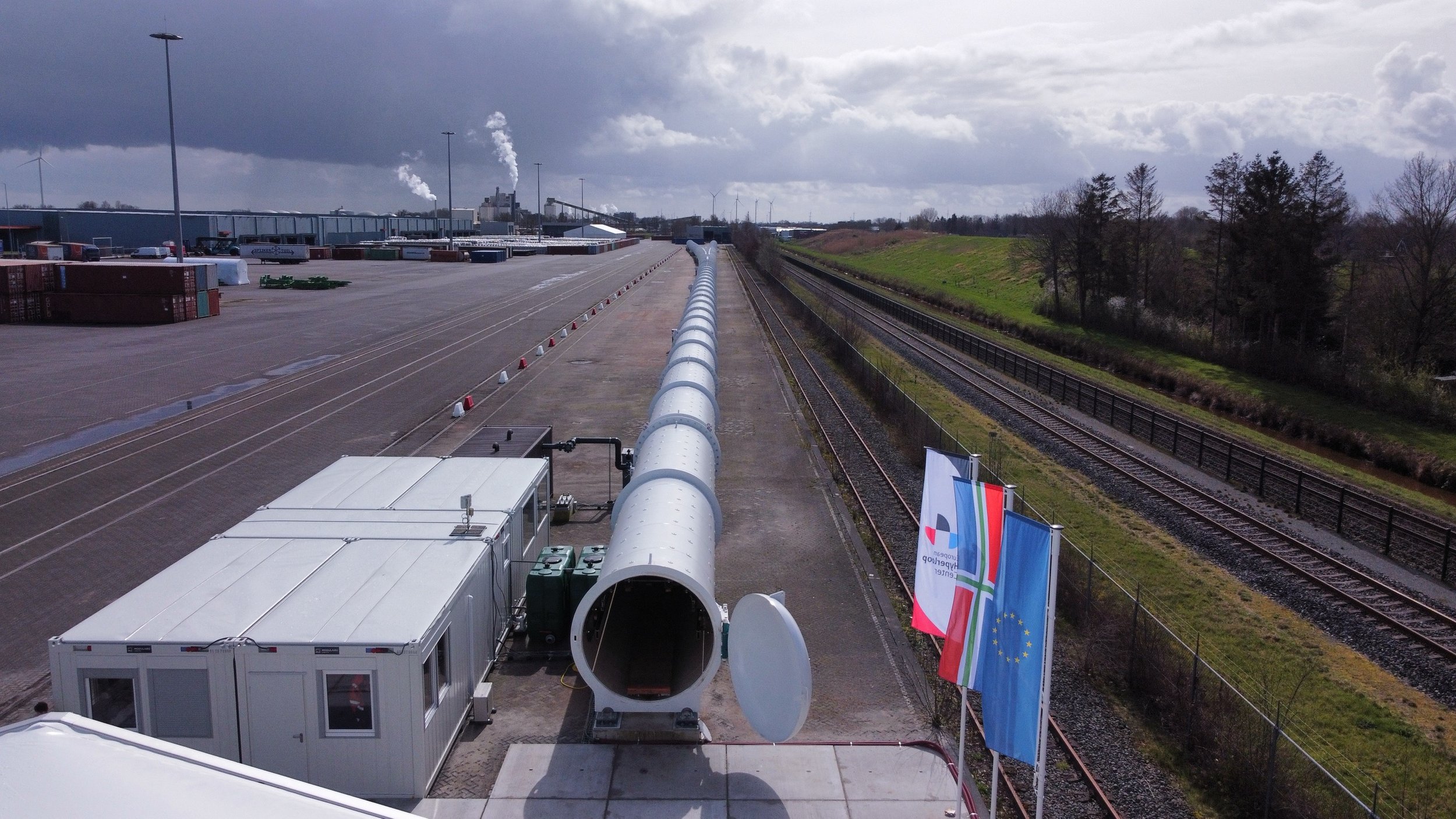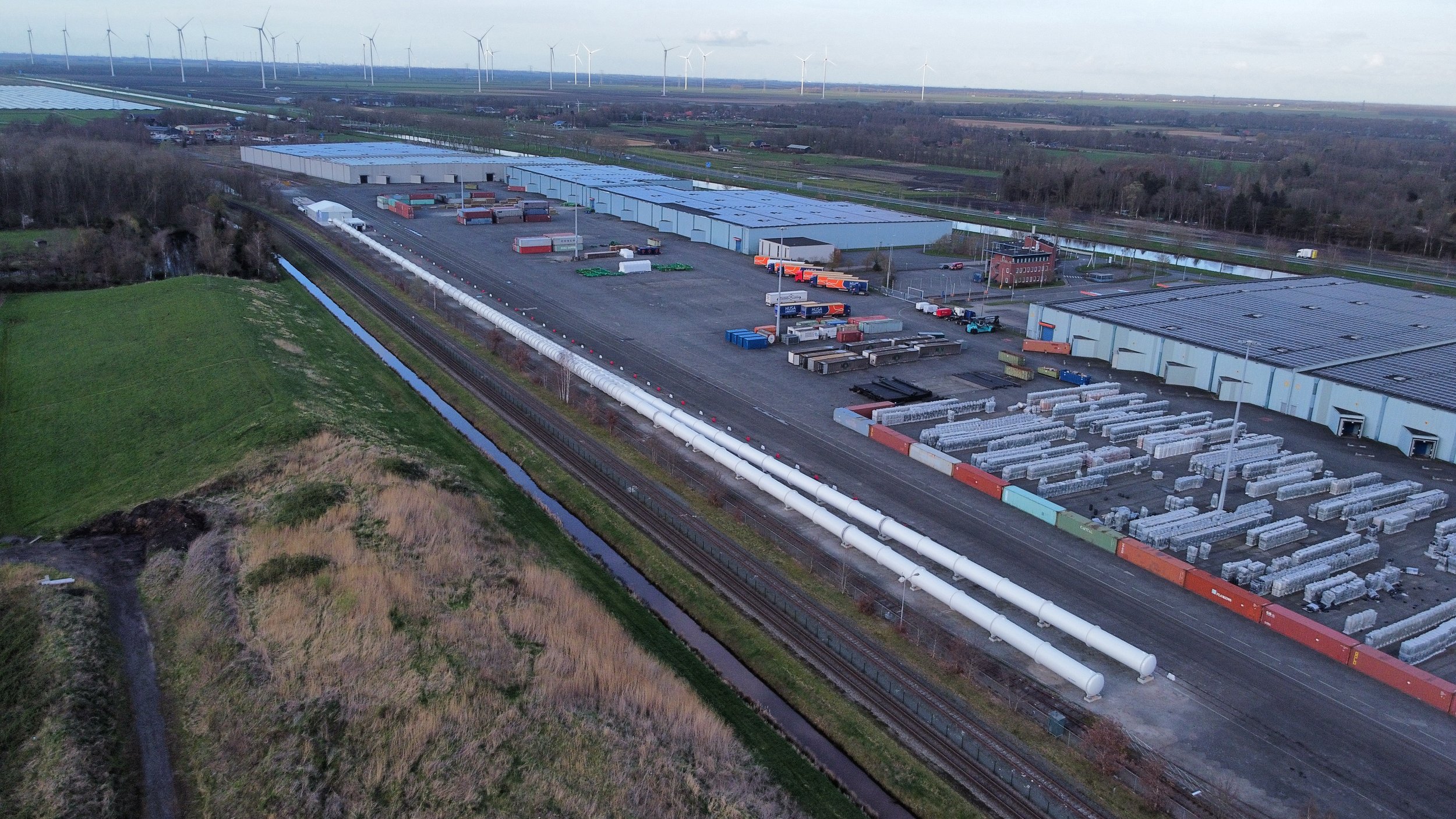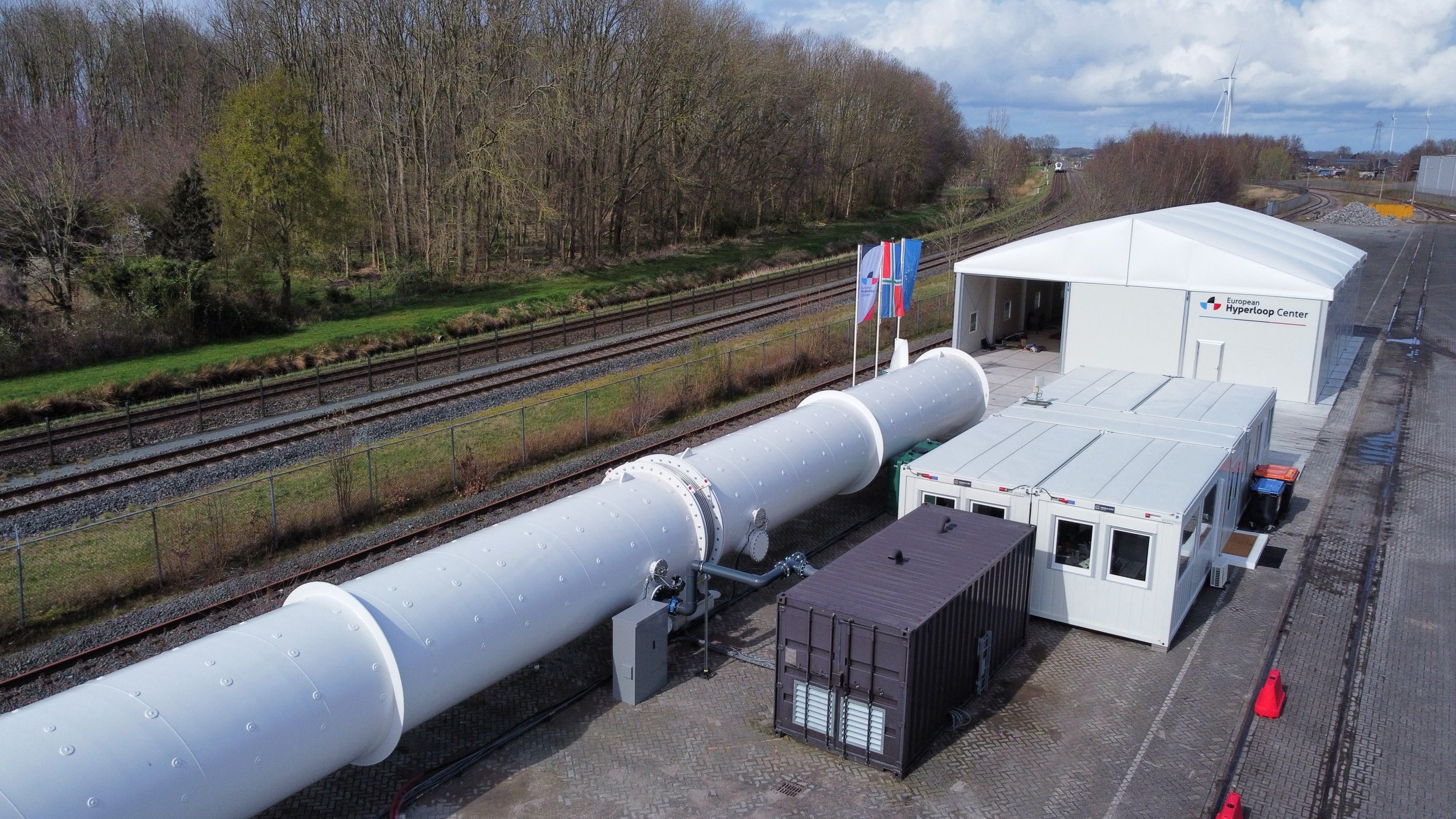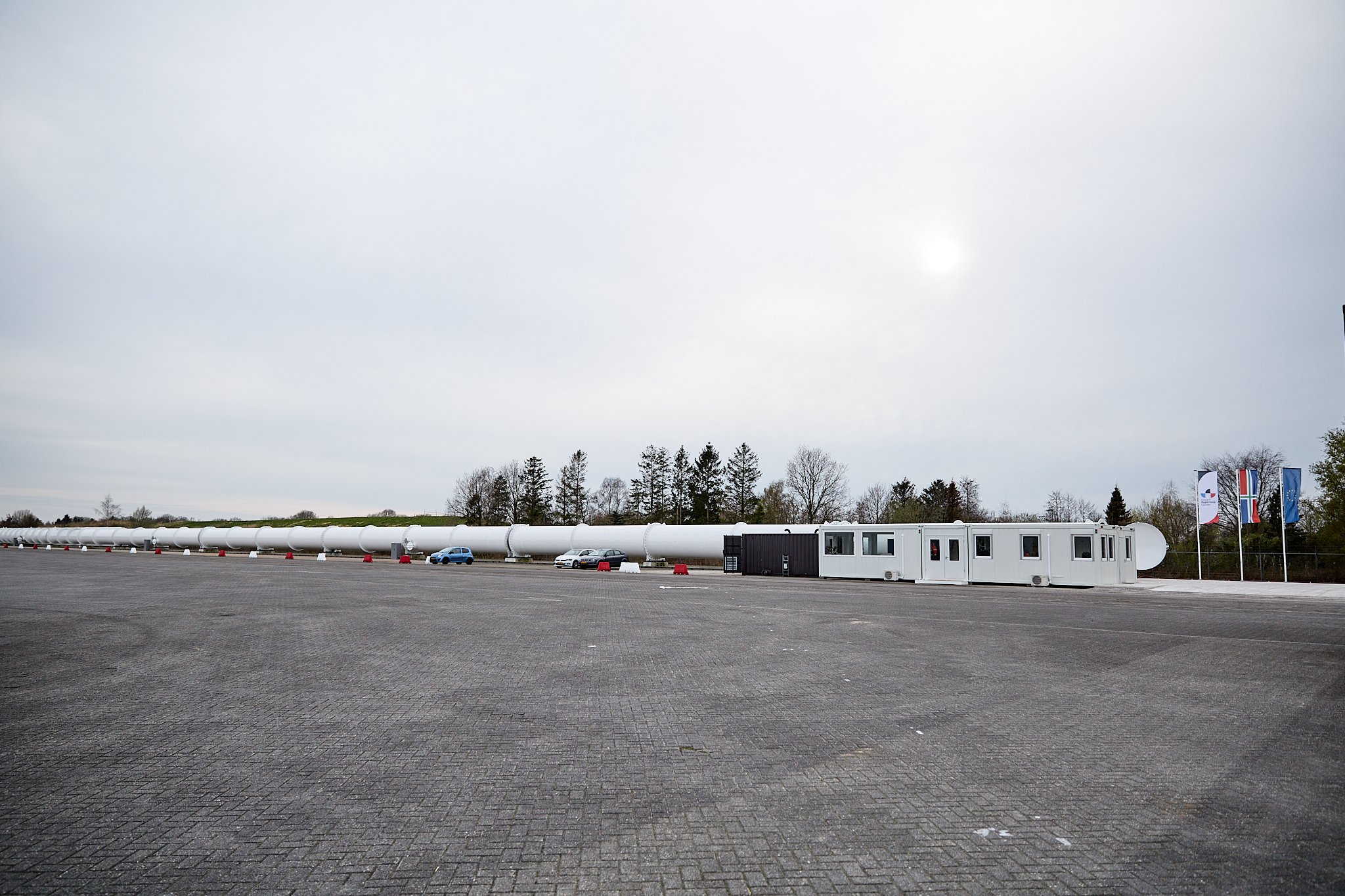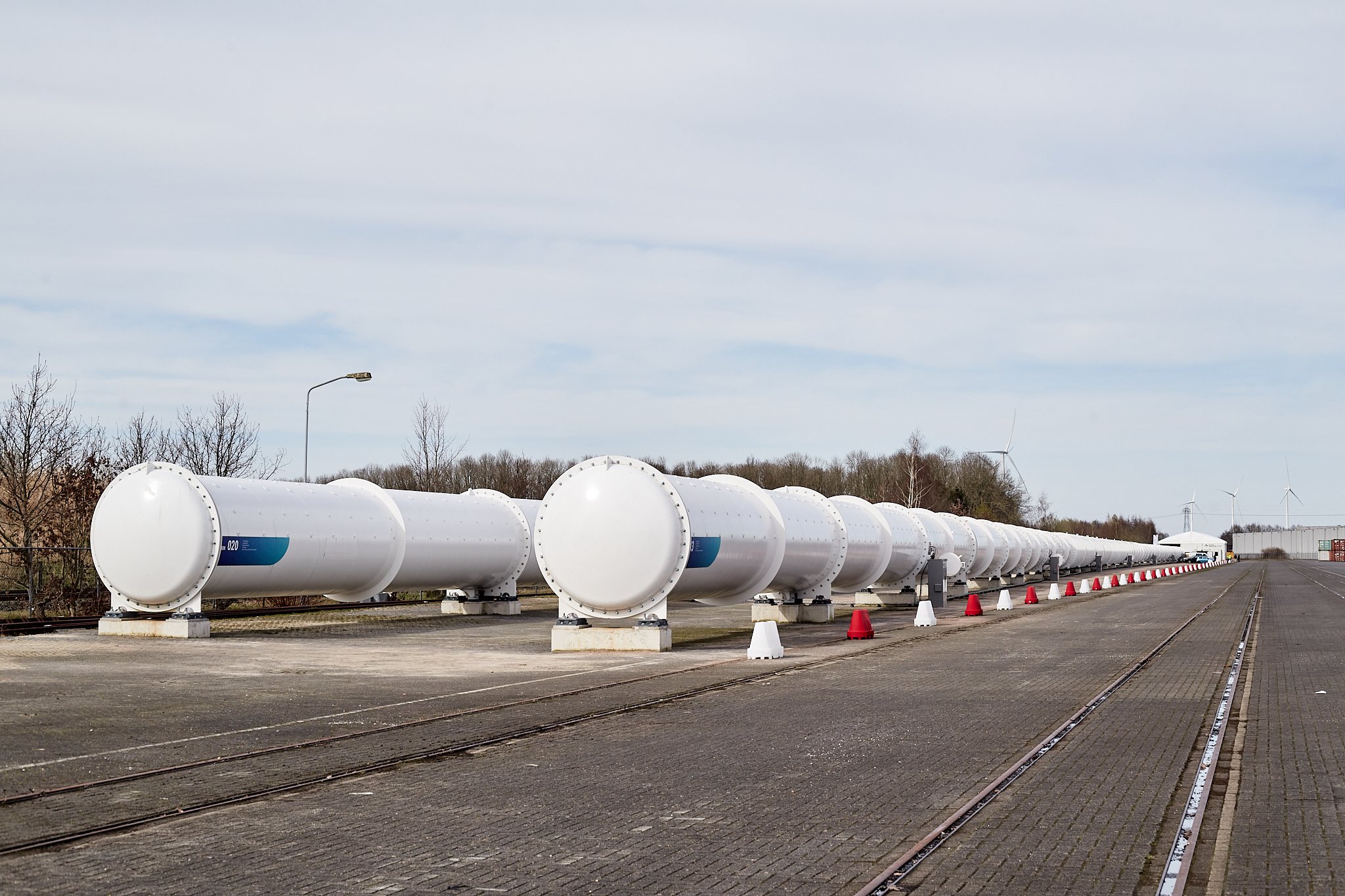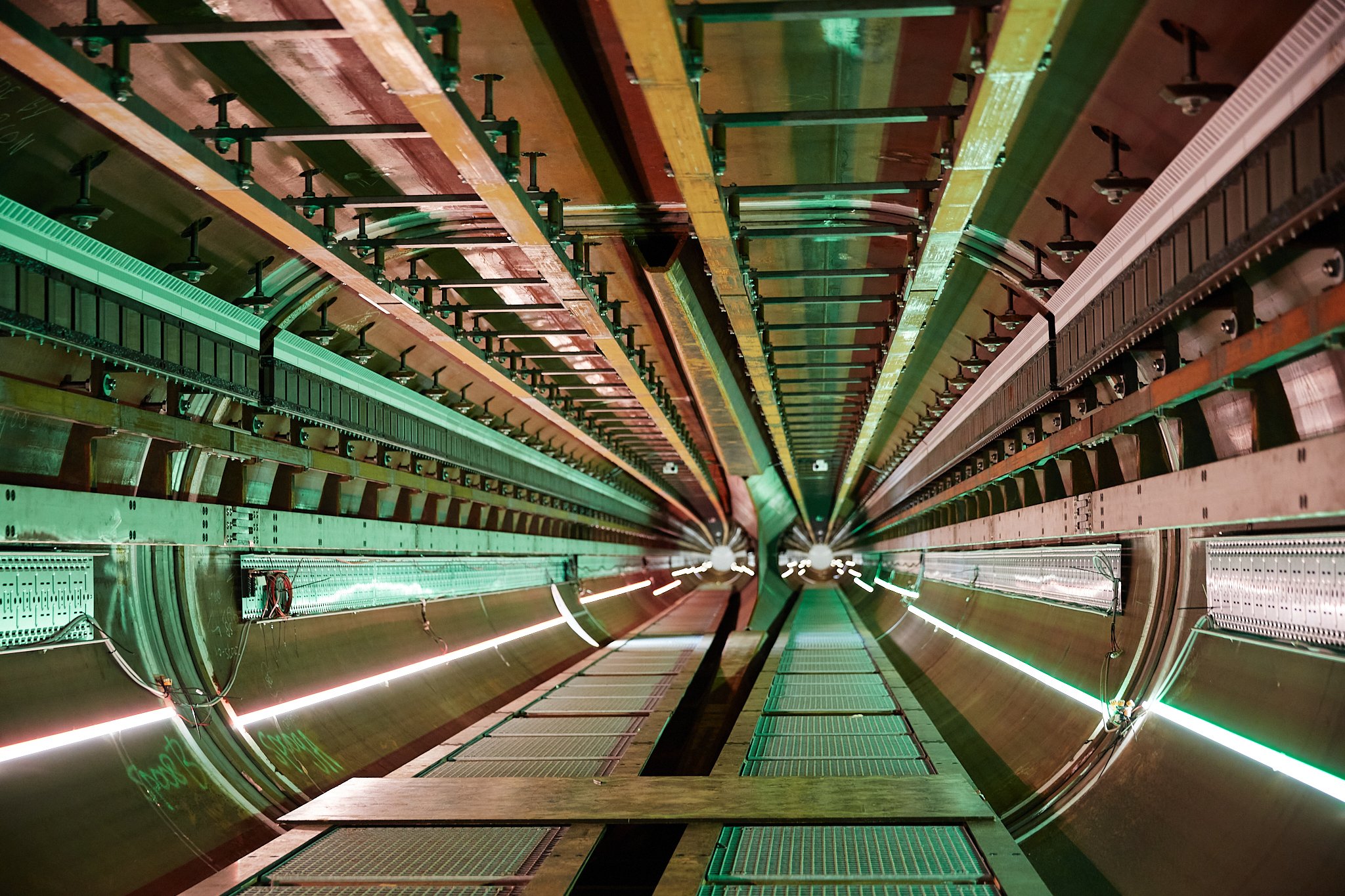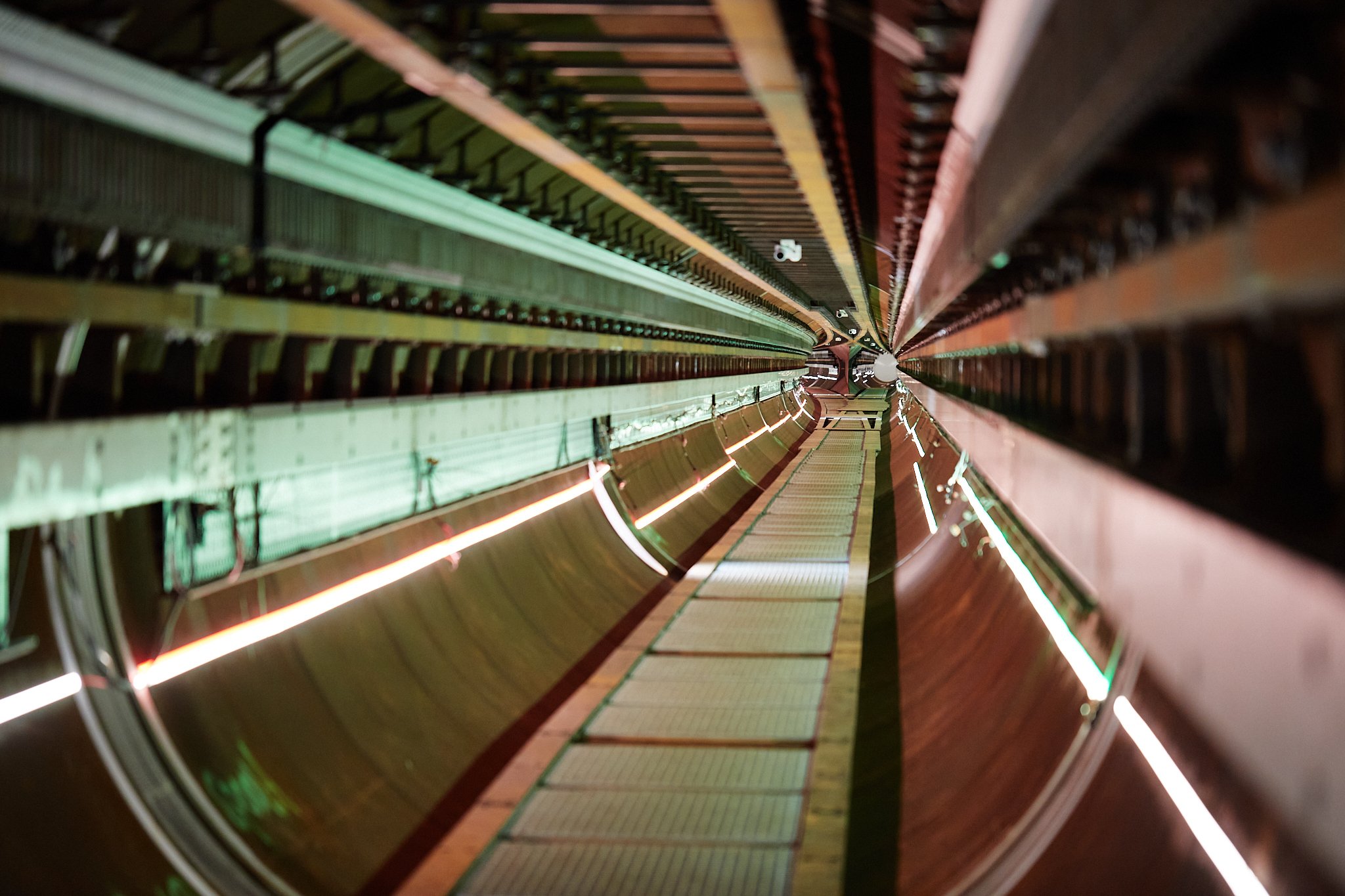European Hyperloop Center Opens Up For The First Test
Veendam, 27th of March – The European Hyperloop Center (EHC) announces the completion of its hyperloop test infrastructure and opens up for the first tests. This facility, featuring a 420-meter hyperloop test tube, can demonstrate all essential hyperloop technologies including a full lane switch.
Hardt Hyperloop, a leading innovator in the field, is set to commence its first tests in the coming weeks.
Sascha Lamme, Director of the EHC, expressed his enthusiasm: “This marks a pivotal moment in hyperloop development. It is great that this state-of-the-art facility in the Province of Groningen has been brought to life with the support of all our partners, and we can’t wait for the first tests to happen”.
The test infrastructure at the EHC is designed to represent real-world conditions. The inclusion of a full lane switch is a particularly notable feature, which is essential for the realization of hyperloop networks.
Marinus van der Meijs, co-founder & Technology and Engineering Director at Hardt Hyperloop, commented on the upcoming tests: “The European Hyperloop Center's facility is the perfect ground for us to validate and advance our technology. This infrastructure enables us to demonstrate the essential technologies such as magnetic levitation, propulsion, stabilization, and even lane-switching, at speeds up to 100 km/hr”.
The EHC is part of the Hyperloop Development Program (HDP): a public-private partnership of more than 25 partners to advance the hyperloop technology. The hyperloop pipes are made from steel developed by POSCO (KR) in collaboration with Tata Steel (NL), have been assembled into fully pre-fabricated hyperloop tubes by contractor Mercon (NL), and have been installed by infrastructure company Denys (BE). In total, more than 50 companies have been involved in the realization of the infrastructure.
Multiple hyperloop technology companies and research institutes are part of the HDP, consisting of EuroTube (CH), Hardt Hyperloop (NL), Nevomo (PL), and Zeleros (ES). The HDP has financial support from the European Commission (EIC Accelerator), the Dutch Government (Ministry of Economic Affairs & Climate, and the Ministry of Infrastructure & Water Management), and the Province of Groningen (Samenwerkingsverband Noord Nederland).
To foster technical advancement of the hyperloop ecosystem, the European Hyperloop Center is an open hyperloop test facility. Organizations are welcome to test their technologies in this infrastructure. The European Hyperloop Center is also part of a European Research Infrastructure Cluster together with a hyperloop test facility in Switzerland, DemoTube (120 meters), from hyperloop developer EuroTube. Combining the results of both hyperloop test facilities further accelerates the advancement the hyperloop development.
Due to the technical advancements of hyperloop, there is an increase in market traction for hyperloop globally. In Italy, a feasibility study on a hyperloop pilot route has recently started. India is gearing up to start a hyperloop pilot in 2026. At a continental level, the European Commission has proposed to include hyperloop in its TEN-T policy with support of the European Parliament. This policy is aimed at enhancing the connectivity between the European Member States.
The hyperloop has promising benefits. The infrastructure is estimated to be cheaper compared to high speed rail. The spatial integration of the hyperloop is deemed easier compared to other types of infrastructure. Lastly, the energy use of traveling with a hyperloop is estimated to be 10x less compared to traveling by car or by plane, providing an energy-efficient solution for the growing transportation needs.
